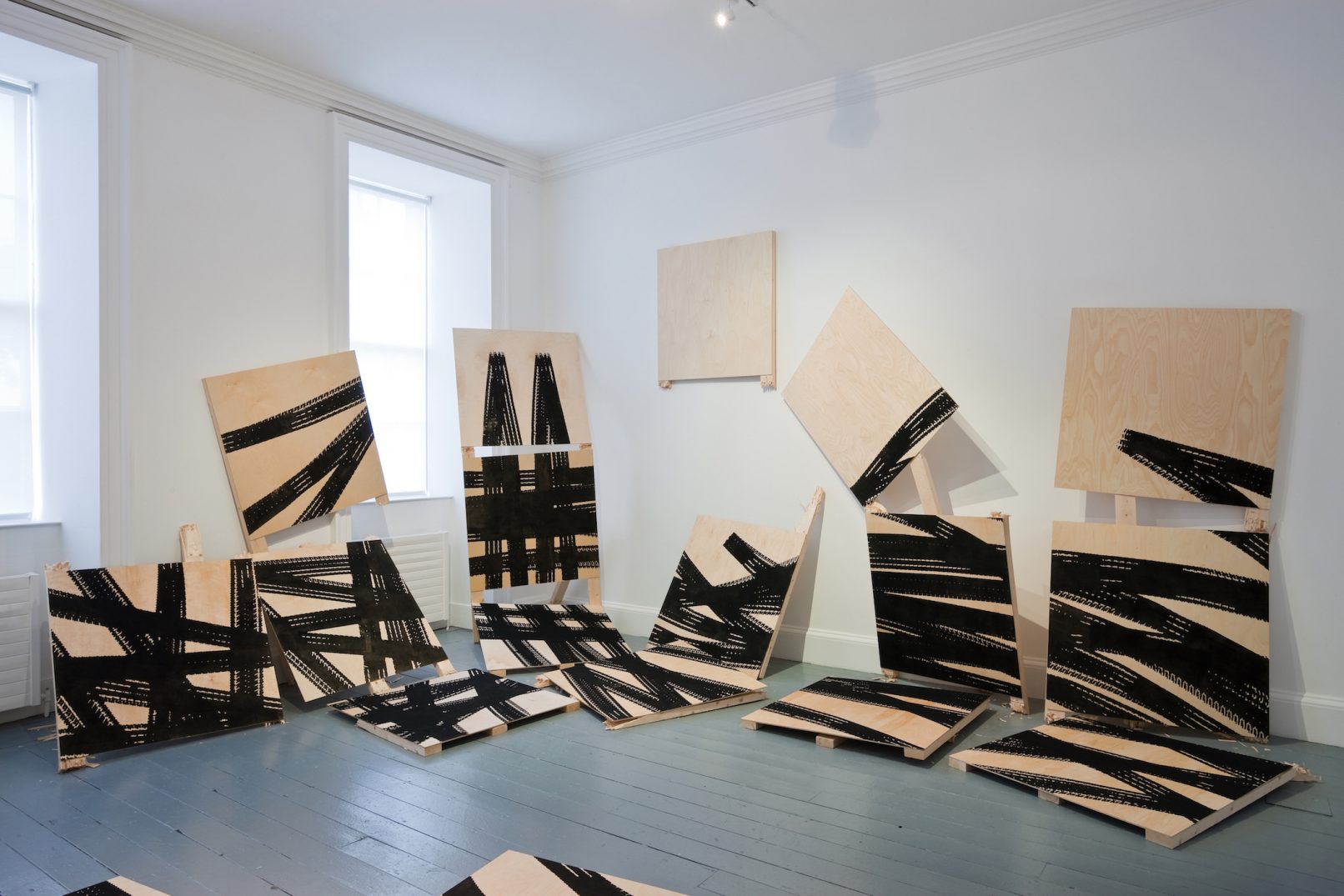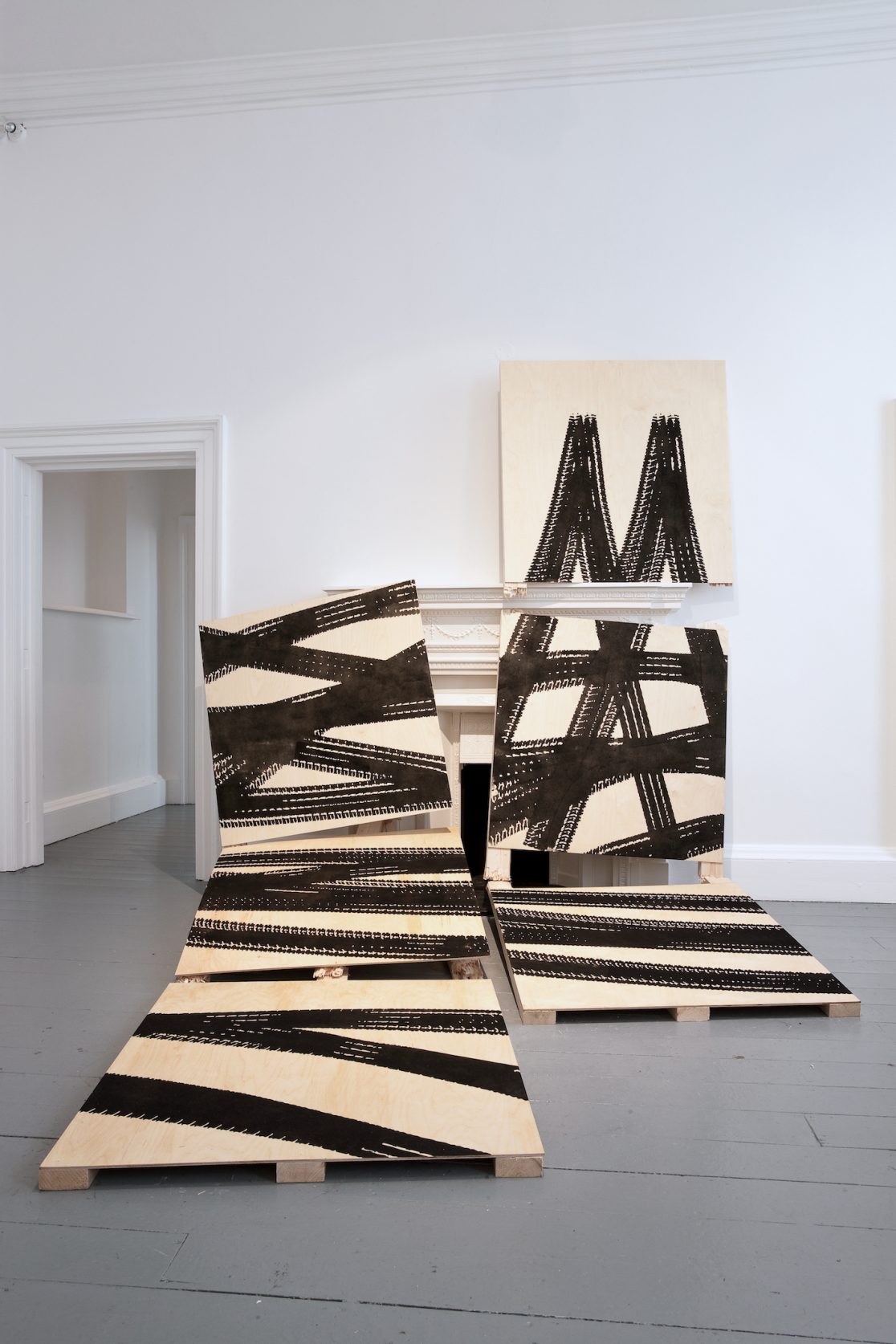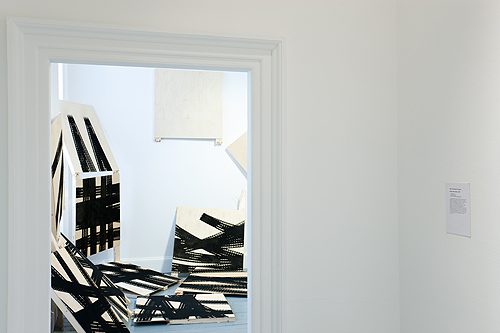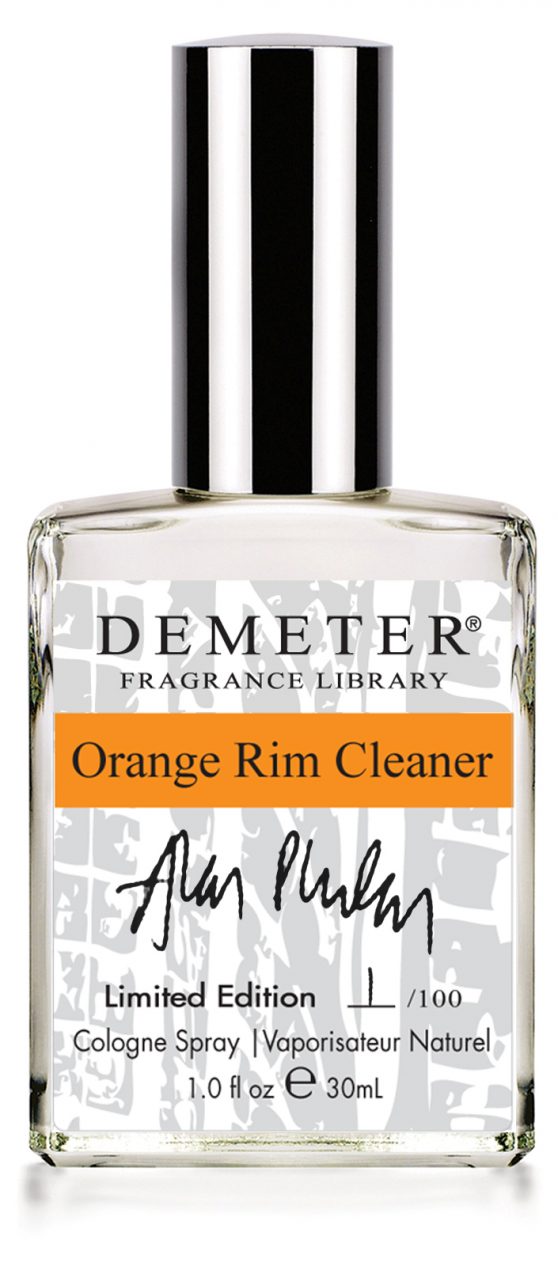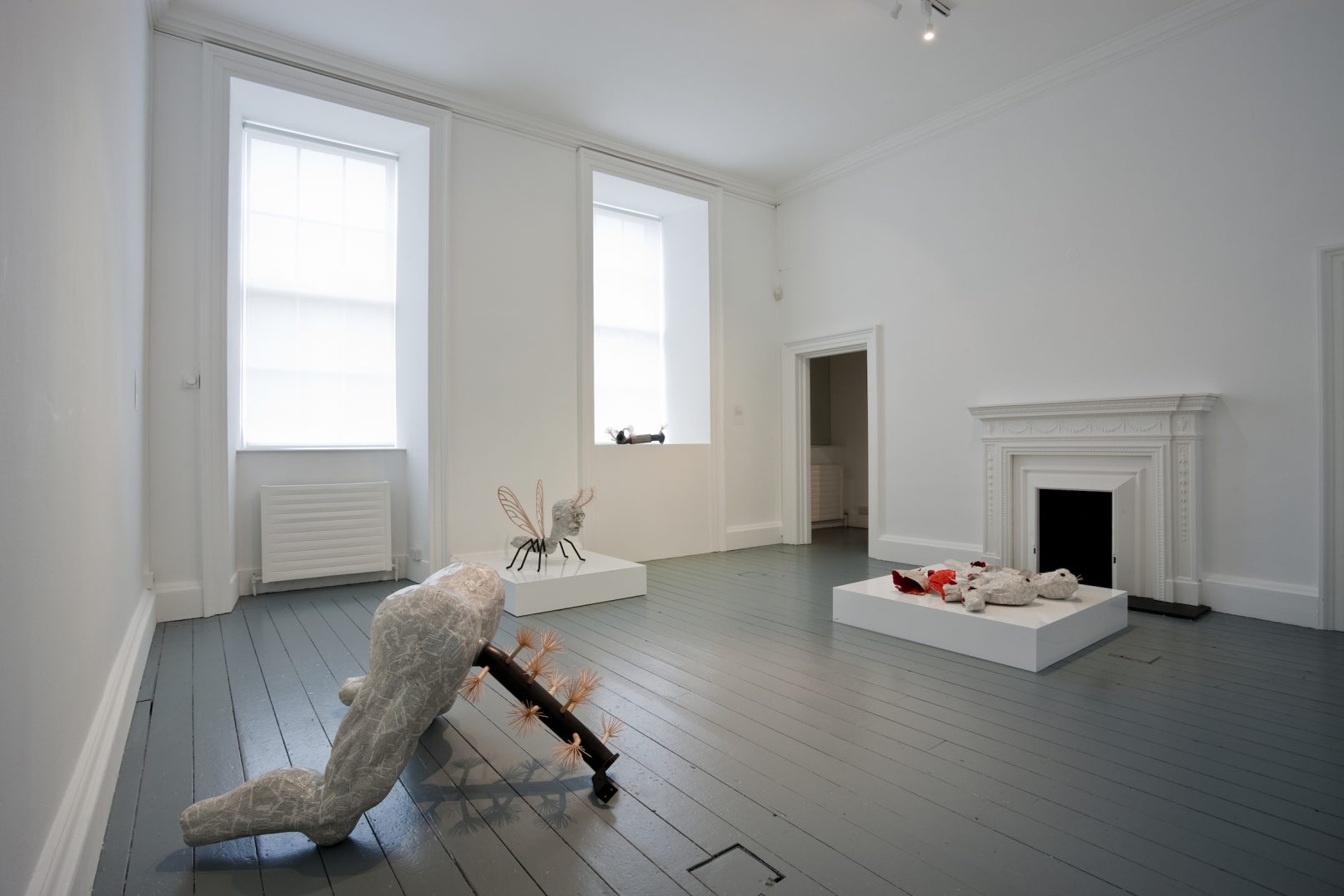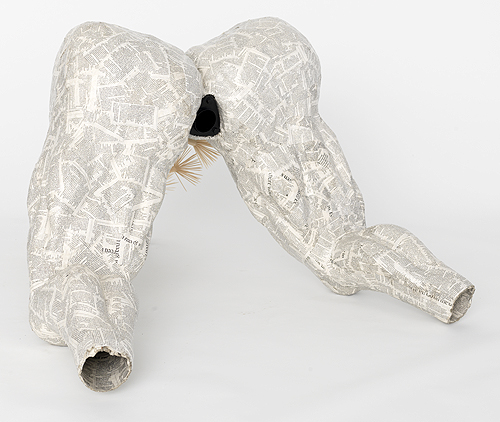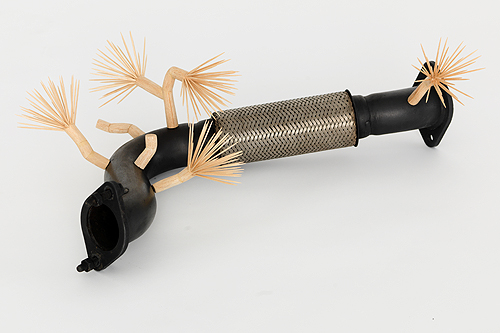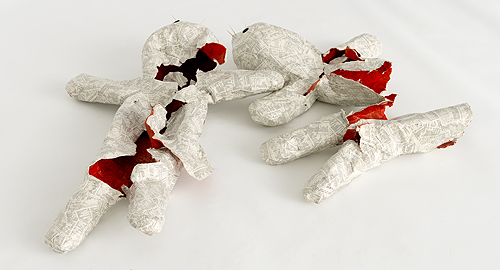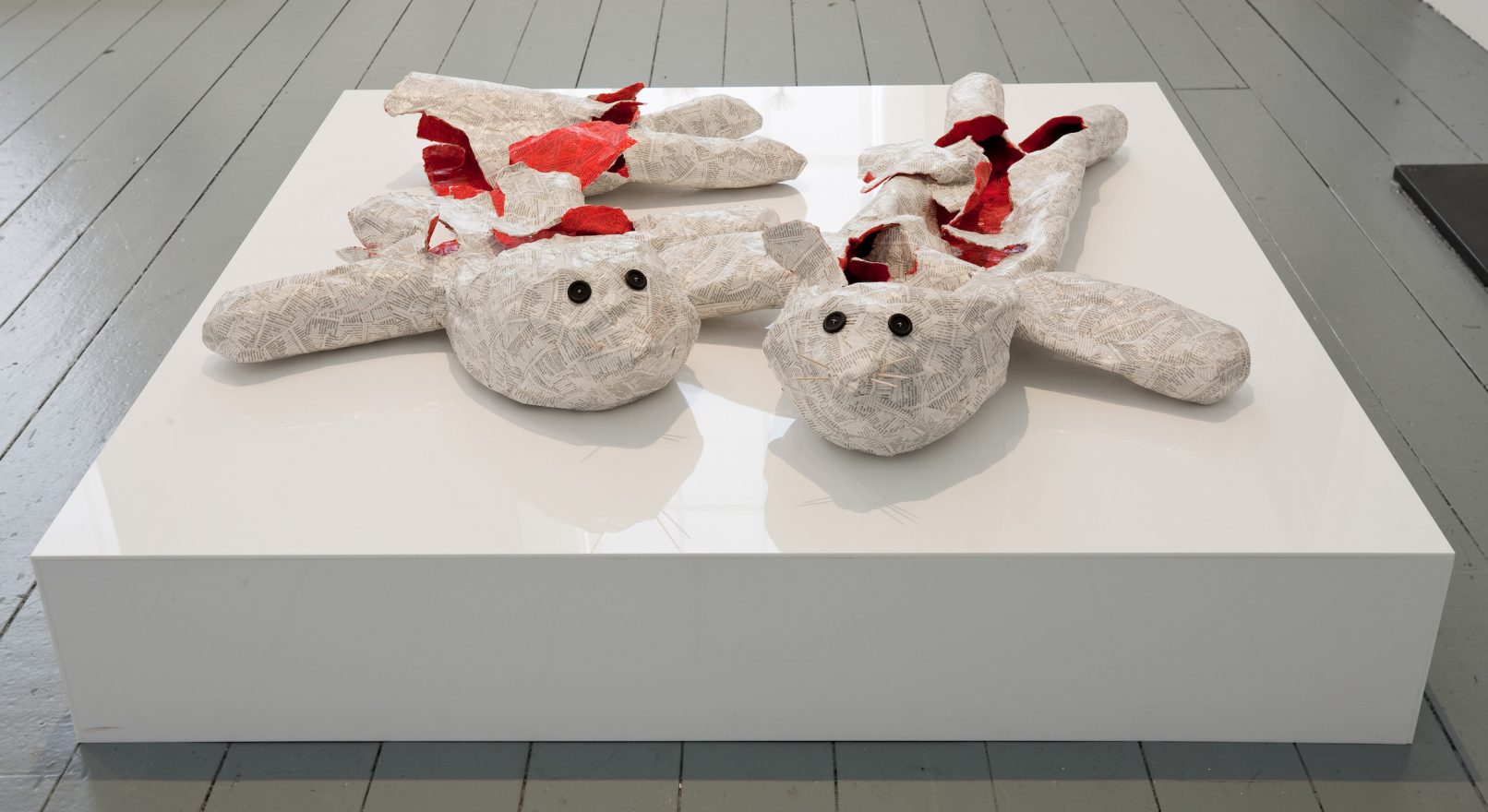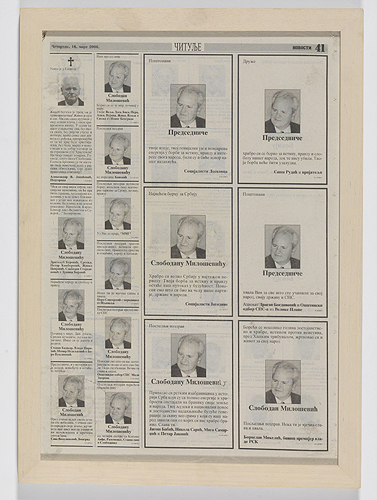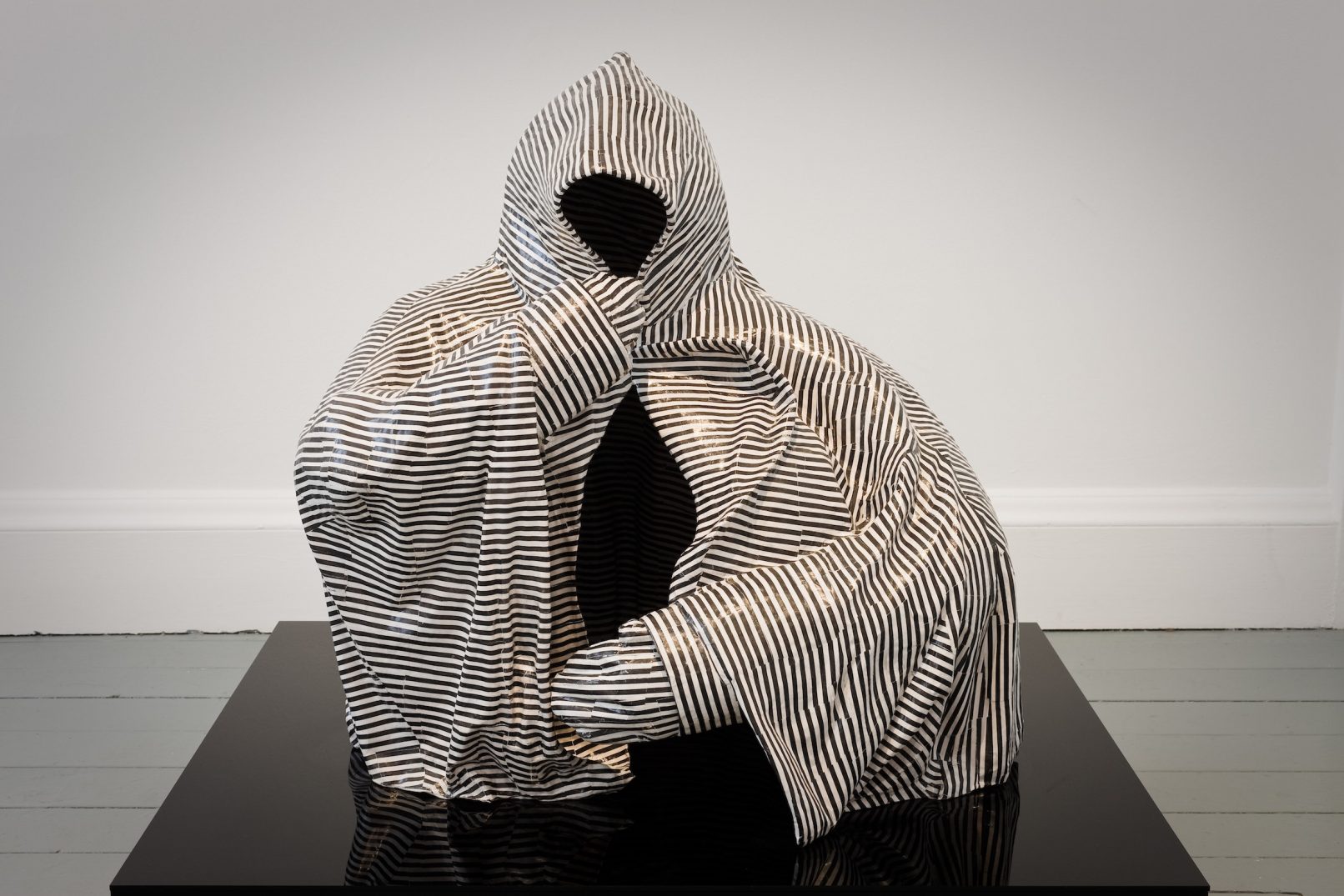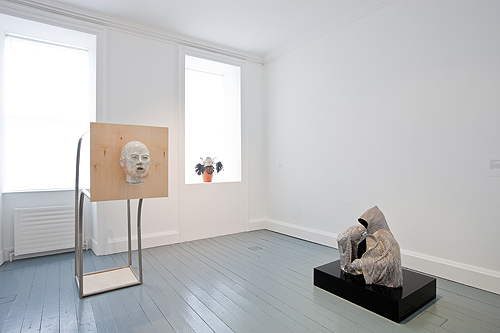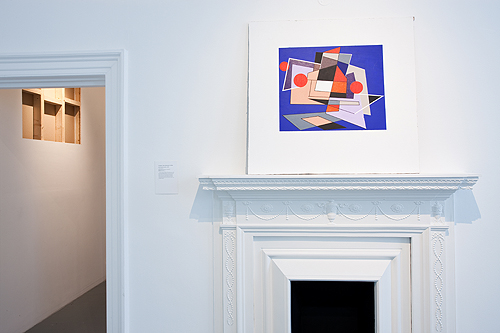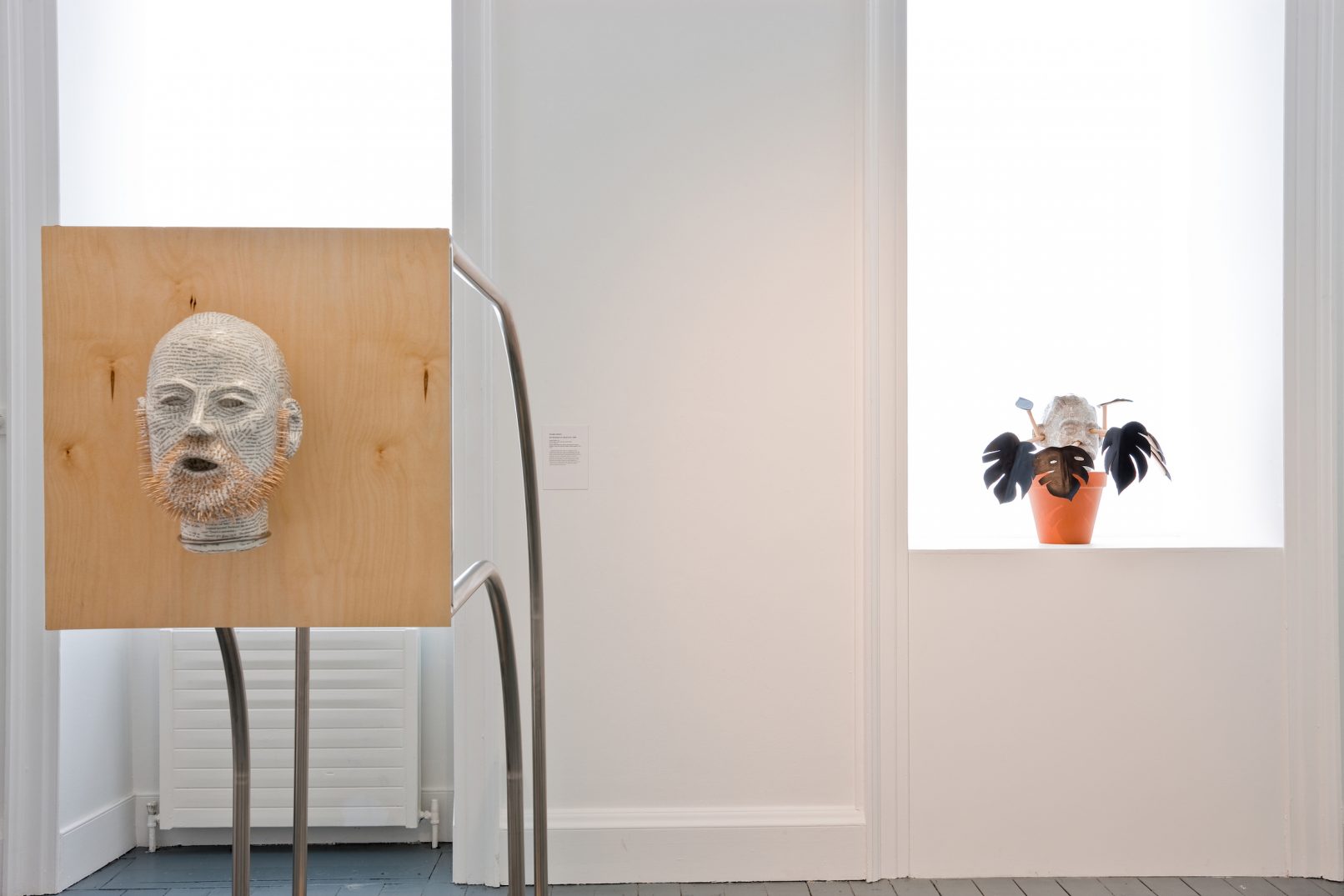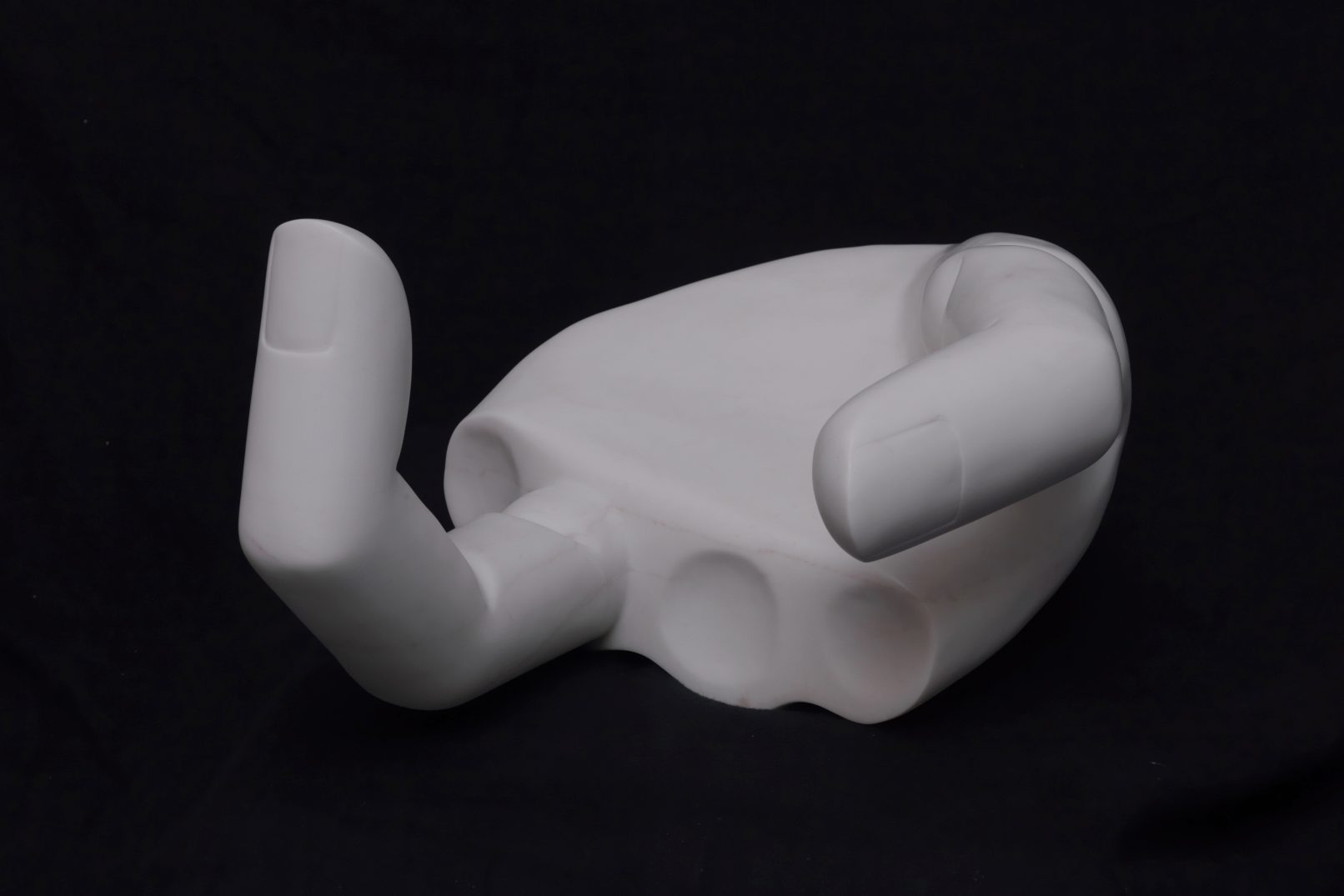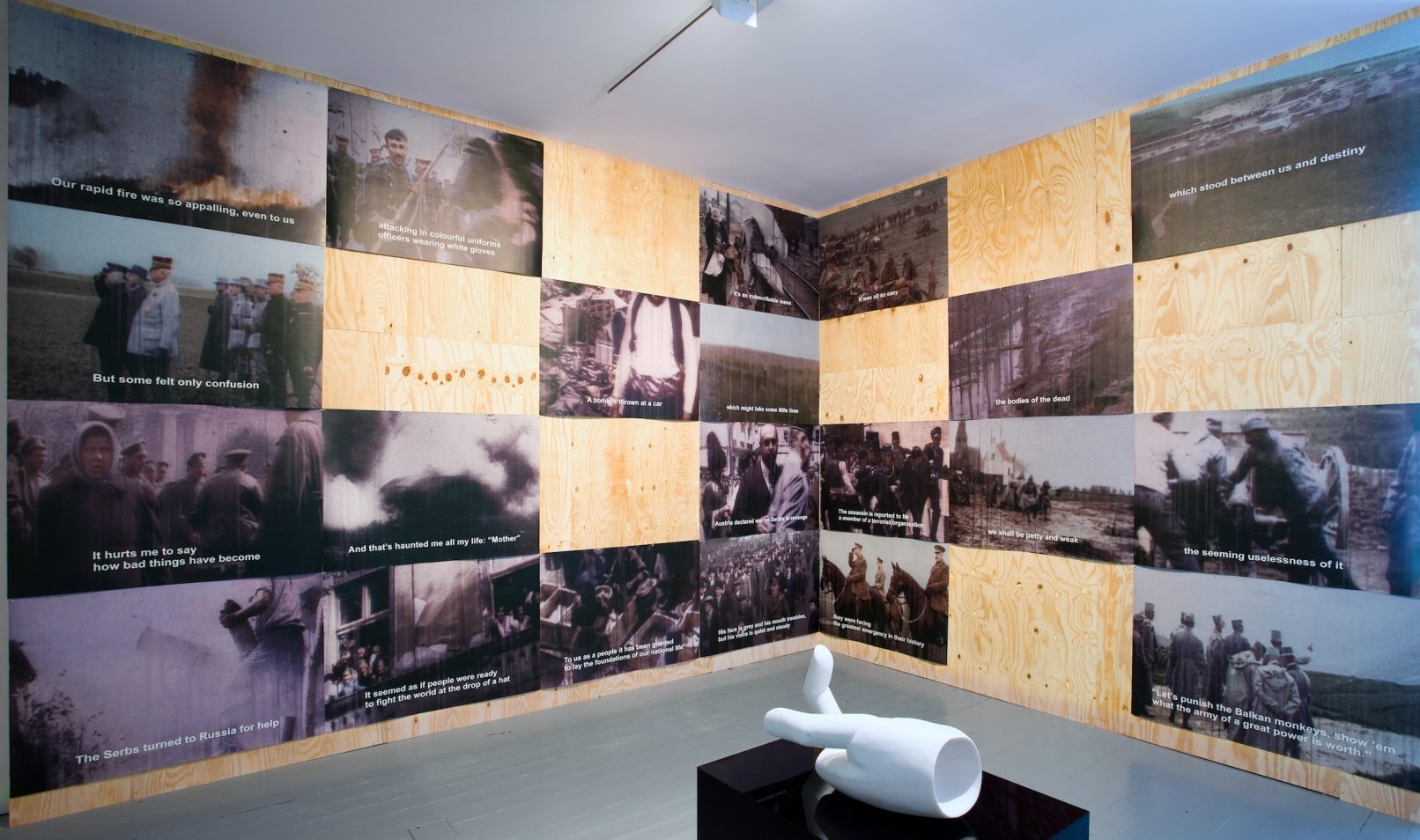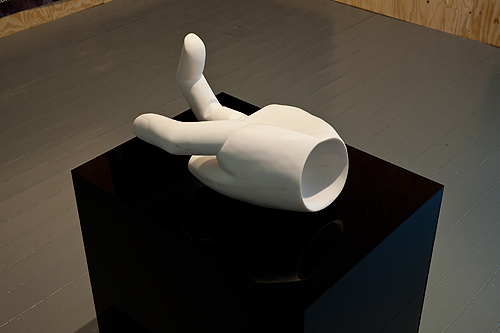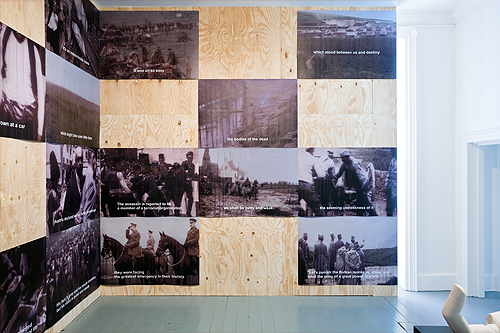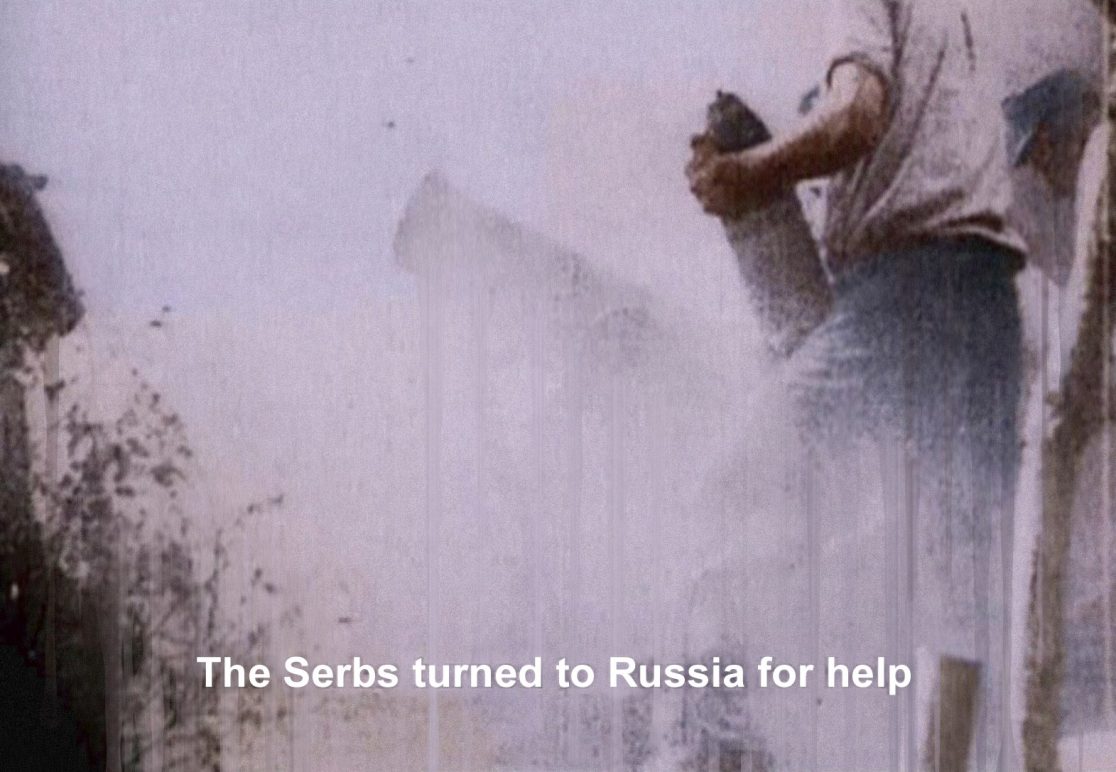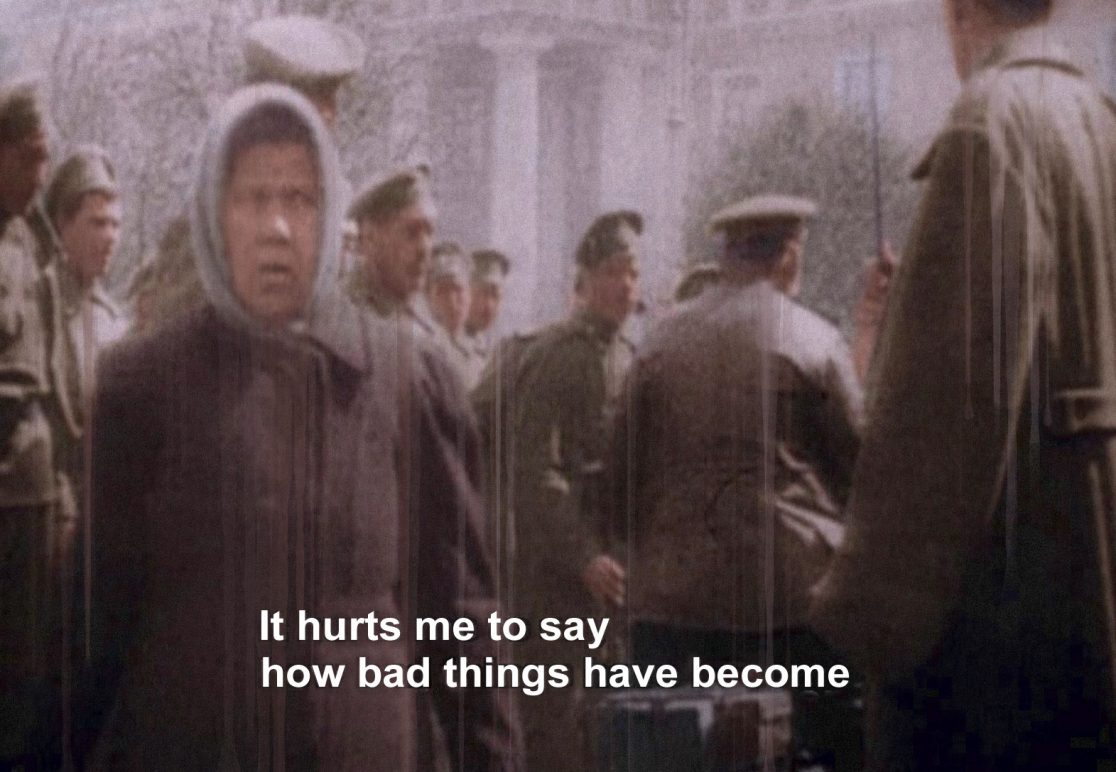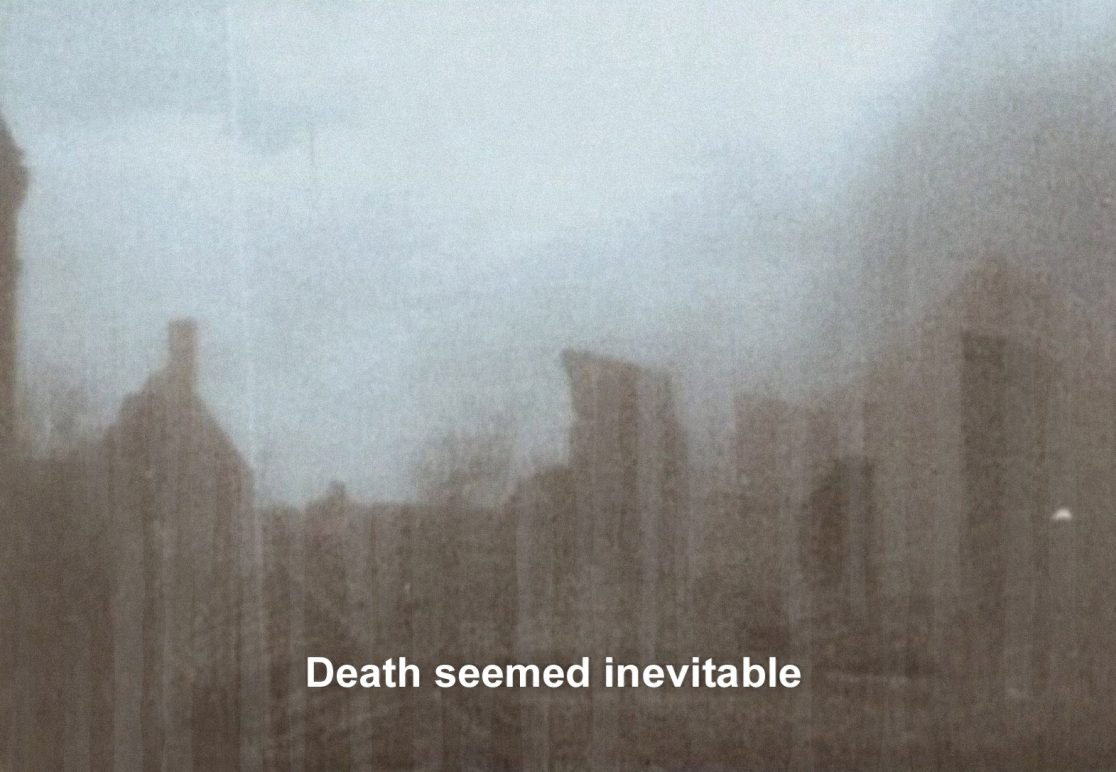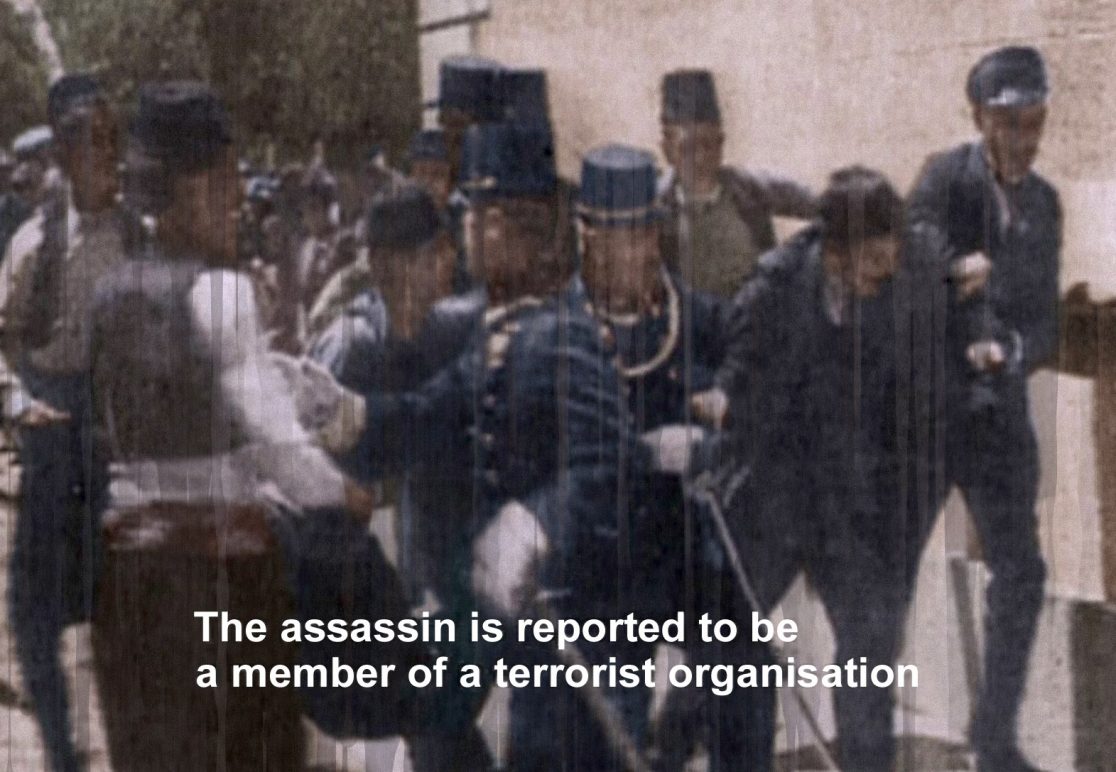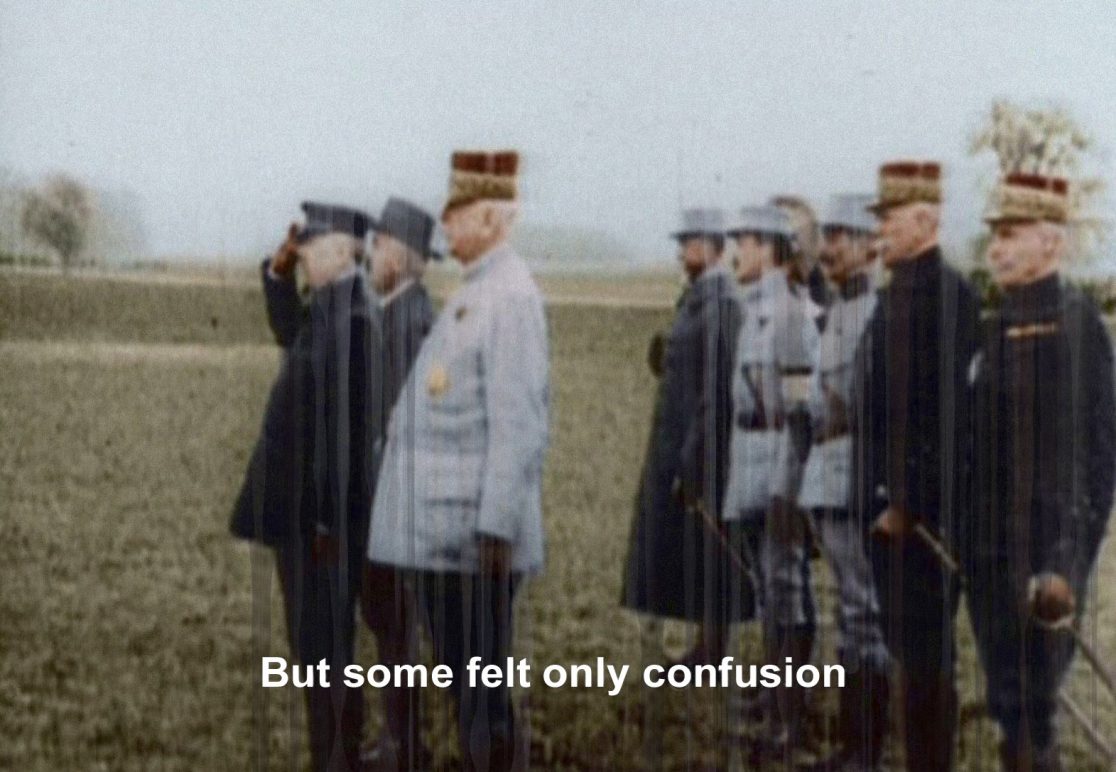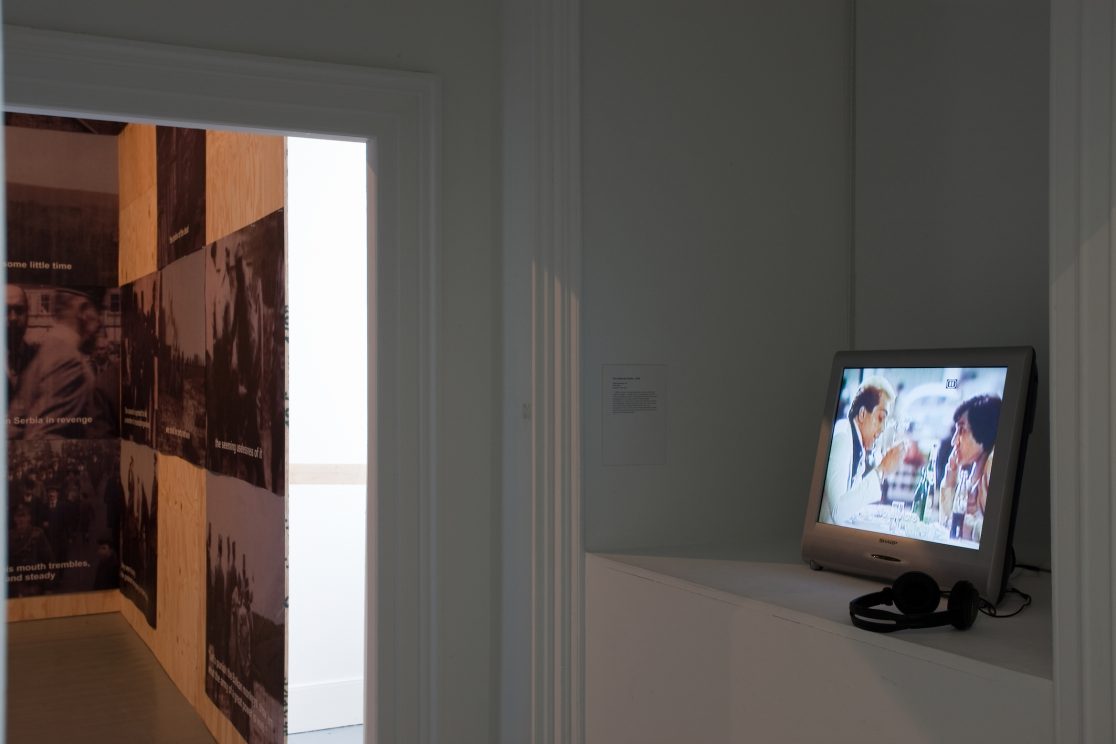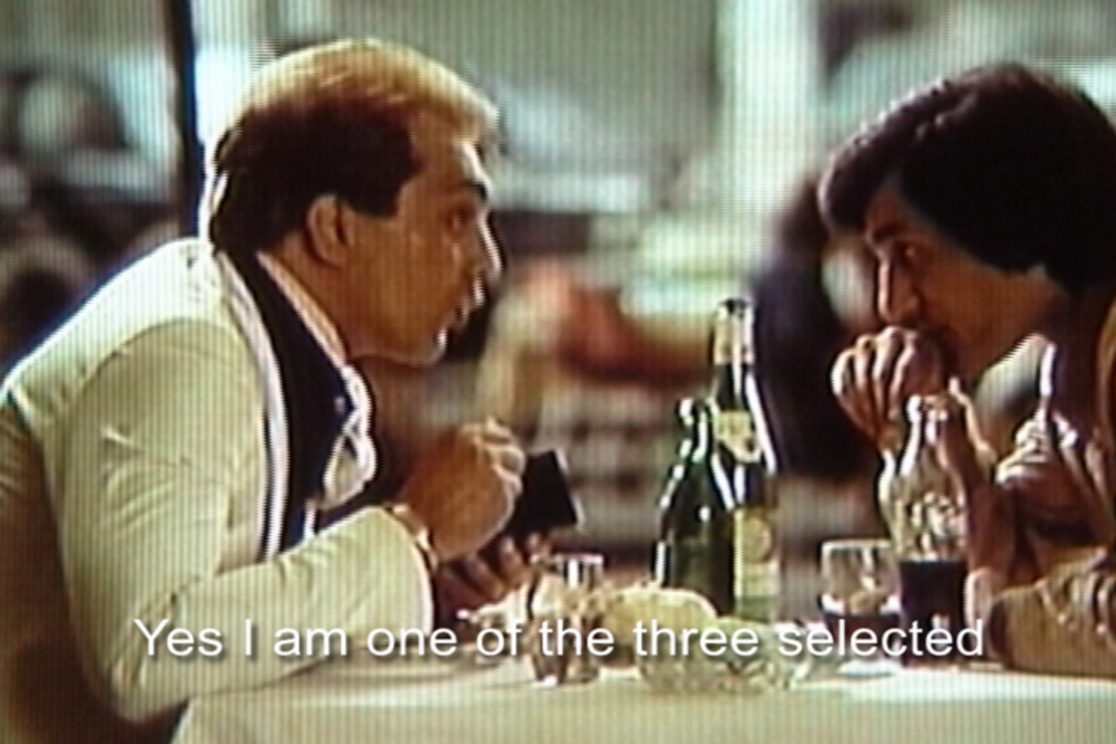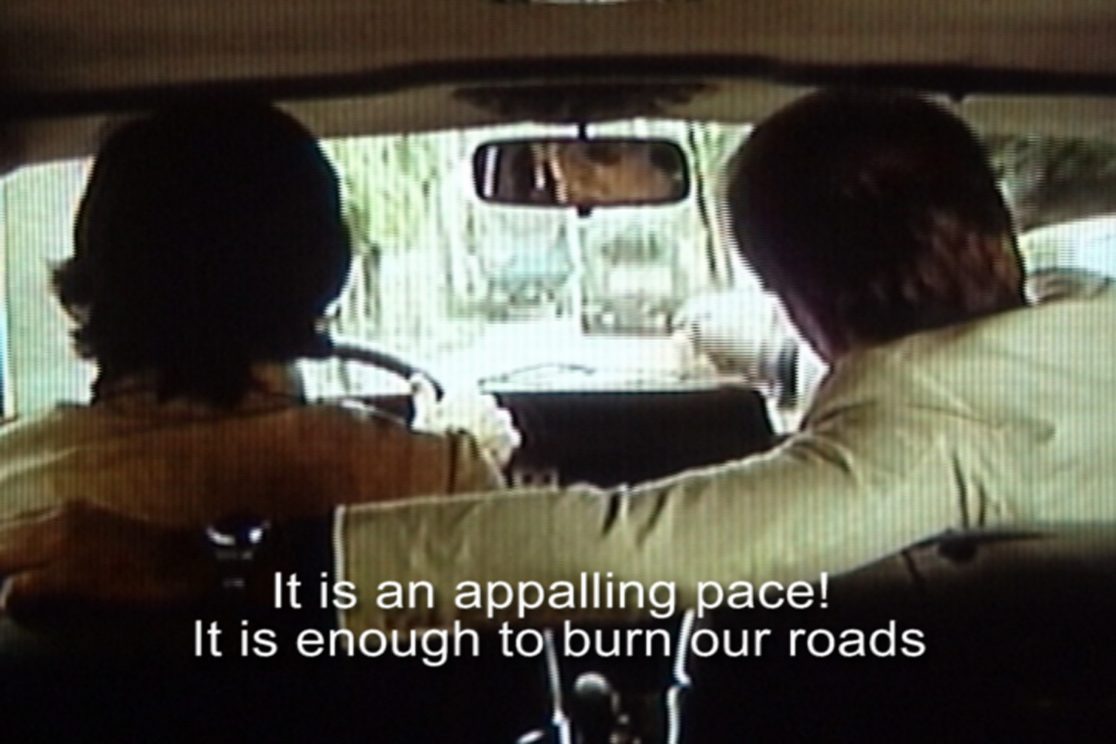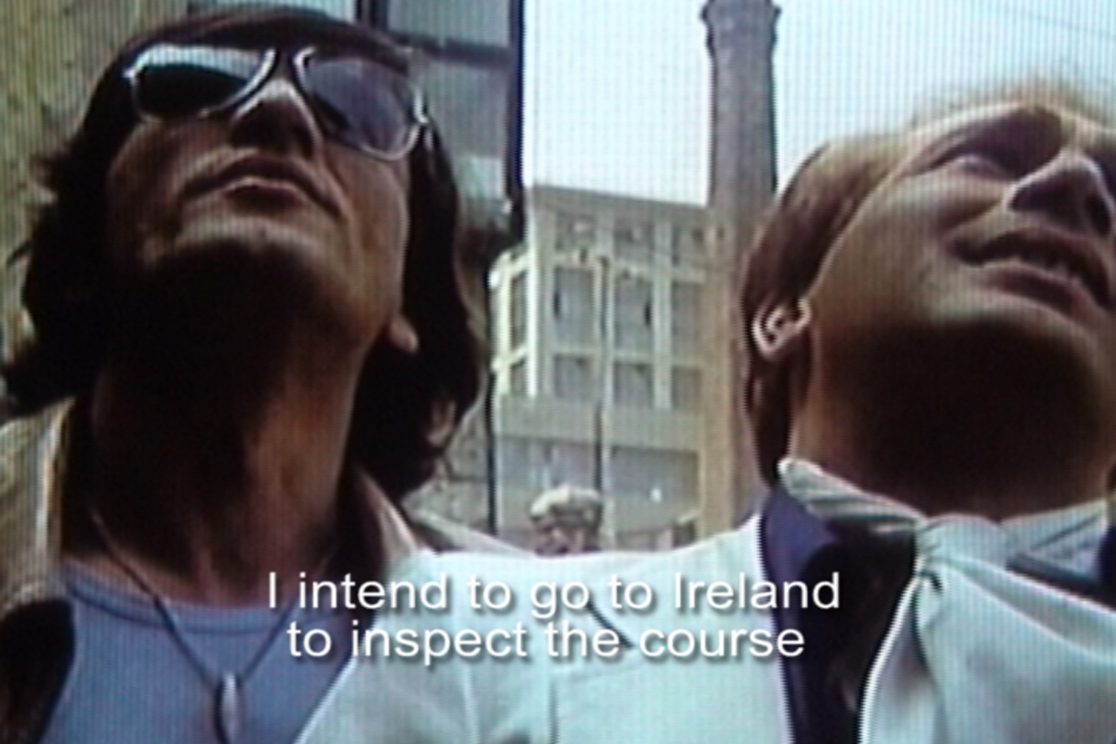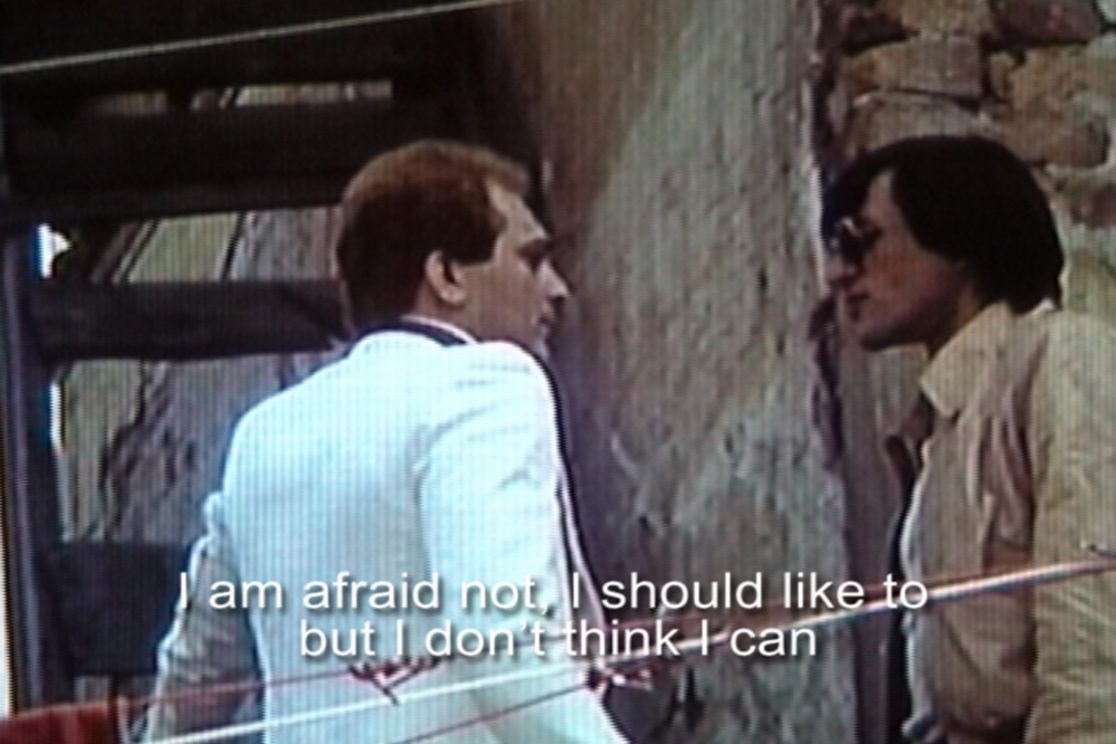Fragile Absolutes: Part One, 2009
Irish Museum of Modern Art, Dublin
Lower East Wing Galleries
22 July – 1 November 2009
Curated by Seán Kissane
Fragile Absolutes presents 16 new and recent works by Irish artist Alan Phelan, all related to his ongoing engagement with political history, cultural theory, popular culture, masculinity and modified cars.
The titles, subtitles and structure of the exhibition are derived from a project Phelan completed during his time on IMMA’s Artists’ Residency Programme in 2008. Taking the italicised words from the Slavoj Žižek book The Fragile Absolute – or, why is the Christian legacy worth fighting for? and using them as random word associations towards 15 ideas for works, now realised in a variety of materials and processes, from hand-carved marble, through to video and papier-mâché sculptures.
The works in the exhibition traverse numerous sources and time periods, from current affairs, popular fiction, boy racers, nationalist heroes, world war, economics, psychoanalysis and globalisation. Phelan sets up a complex mix of the literal and metaphorical references, simultaneously providing background information on many of his subjects, yet leaving them open to conflicting modes of interpretation. Heroes are vilified and despots are celebrated. Good and evil mix freely, undermining the certainty of truth. The decapitated head of Douglas Coupland, the Canadian writer famous for creating the term Generation X, is displayed on a basketball hoop stand; while laudatory death notices for former Serbian President Slobodan Miloševic are framed on the wall. Irish nationalist hero Arthur Griffith is rendered as an irritating mosquito, while fictional Irish Times columnist Ross O’Carroll Kelly is celebrated for his legendary sexual prowess. A woman who stole from a farmer is represented by her court-exit outfit and cute baby seals made from papier-mâché are clubbed to death. Classical Greek statuary is reduced to a store-bought modelling hand, resized and carved in marble in China, while the beginnings of World War I are displayed as a mock-billboard television bank.
In these, and other pieces, we see the artist humorously undermining the content of his own work by setting up sometimes inappropriate, or even tasteless, relationships between his subjects. These works operate side by side in a form of parataxis, without hierarchy – feeding off, informing and contradicting each other – yet shaped from Phelan’s interests in narrative, trans-cultural potential, and provisional meaning. As he reconfigures diverse elements they are lent a new voice – their context providing a means towards interpretation. A number of common elements can be discerned within the Fragile Absolutes body of work. They have a raw, unfinished quality – almost a sense of incompleteness which points to the artist’s intention of presenting discursive or dialogical structures in the place of ‘finished’ artworks. Dušan I. Bjelic uses Heidegger’s term Zuhandenheit to frame the materiality of Phelan’s practice, pointing to a type of ‘infrastructural aesthetic’ which focuses on what is left in the background of a philosophy rather than on what it specifically brings to light.
The exhibition is accompanied by a fully illustrated monograph with essays by Seán Kissane, Curator, IMMA; Dušan Bjelic, Professor of Criminology at the University of Southern Maine in Portland, USA; Medb Ruane, writer and journalist, and Tony White, novelist and journalist [links on names connect to essay texts].
The exhibition is a collaborative project between three venues with new works and configurations appearing at each. The other venues are Chapter Arts Centre, Cardiff, Wales 2009-10 and Limerick City Gallery of Art 2012.
